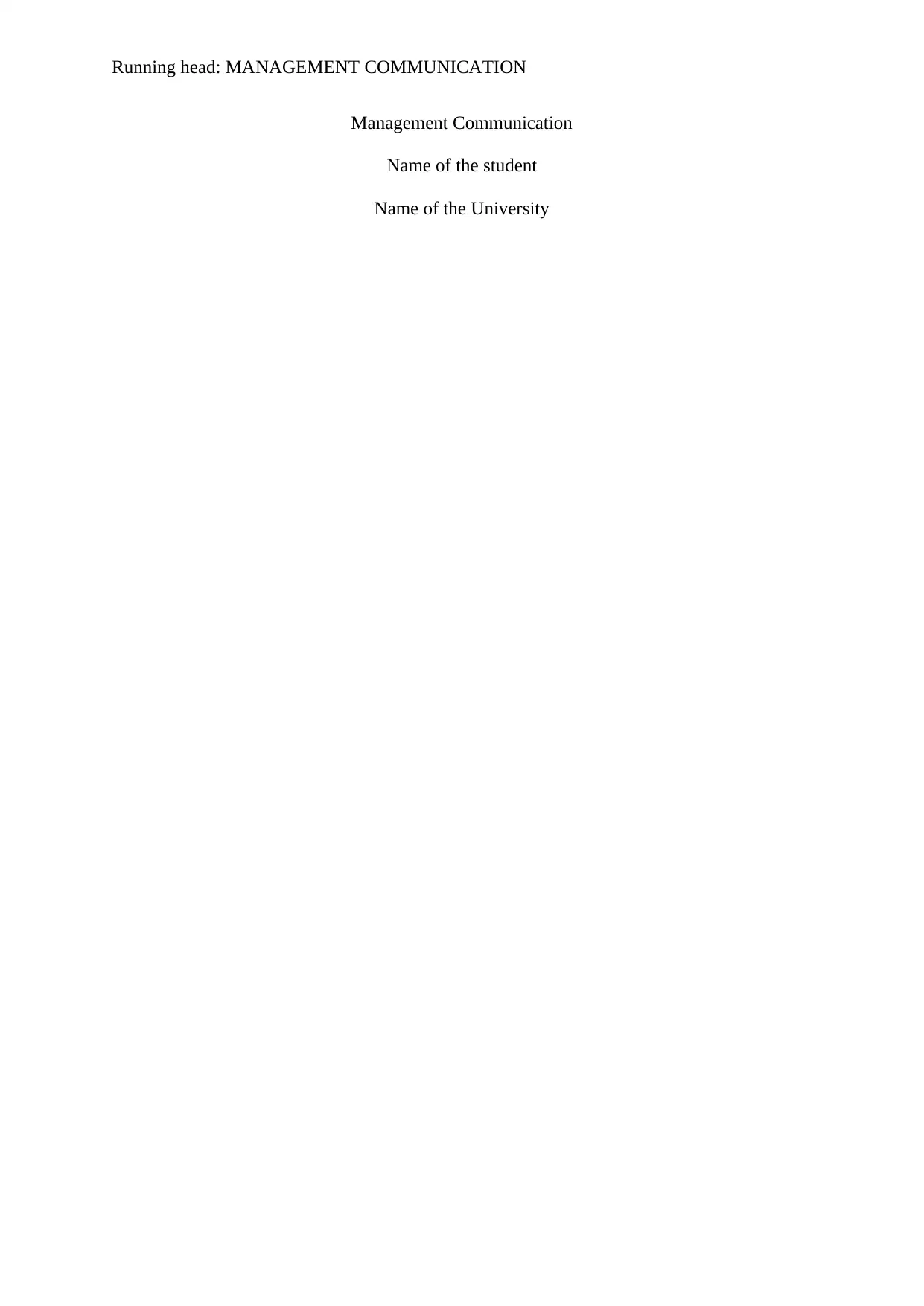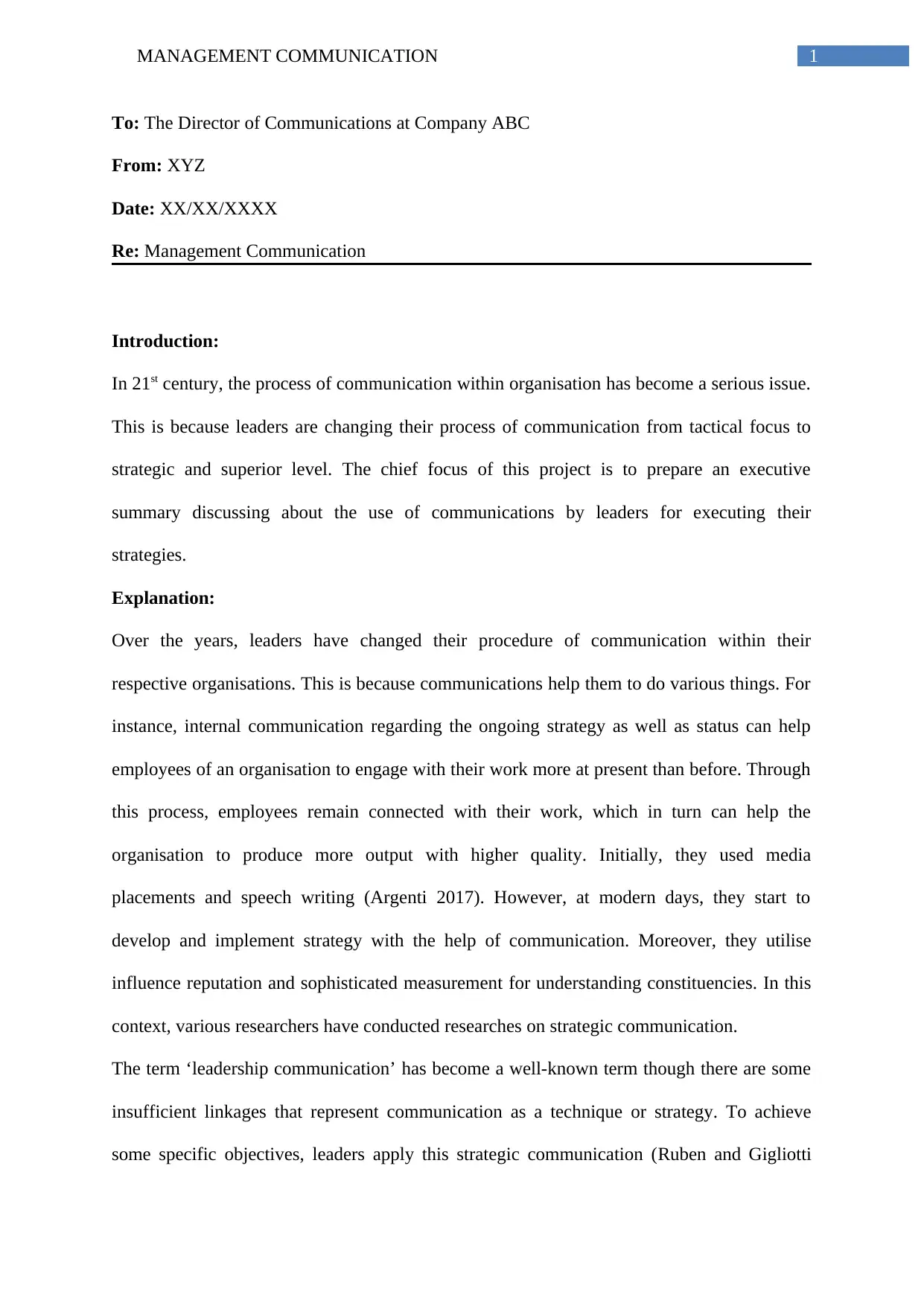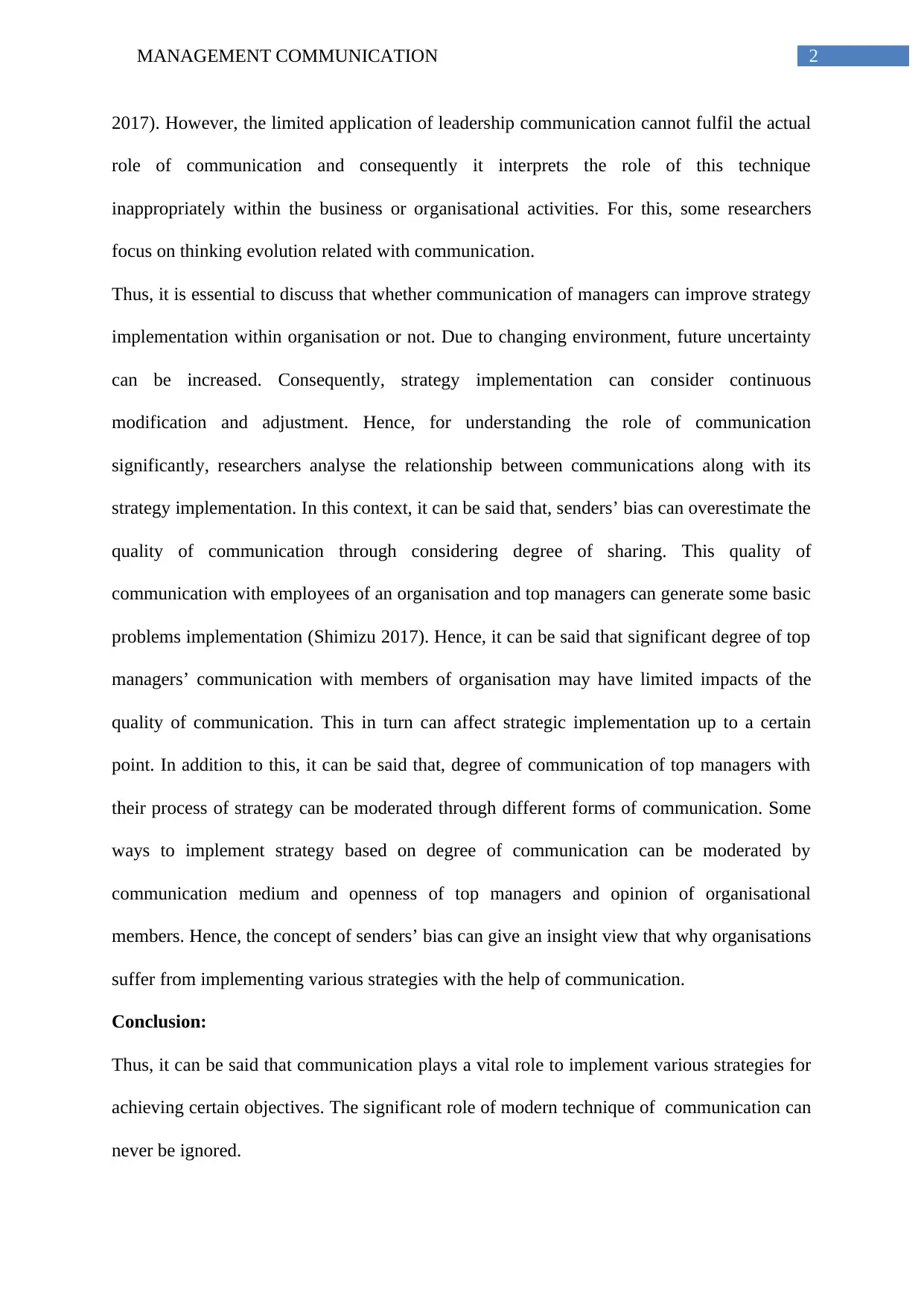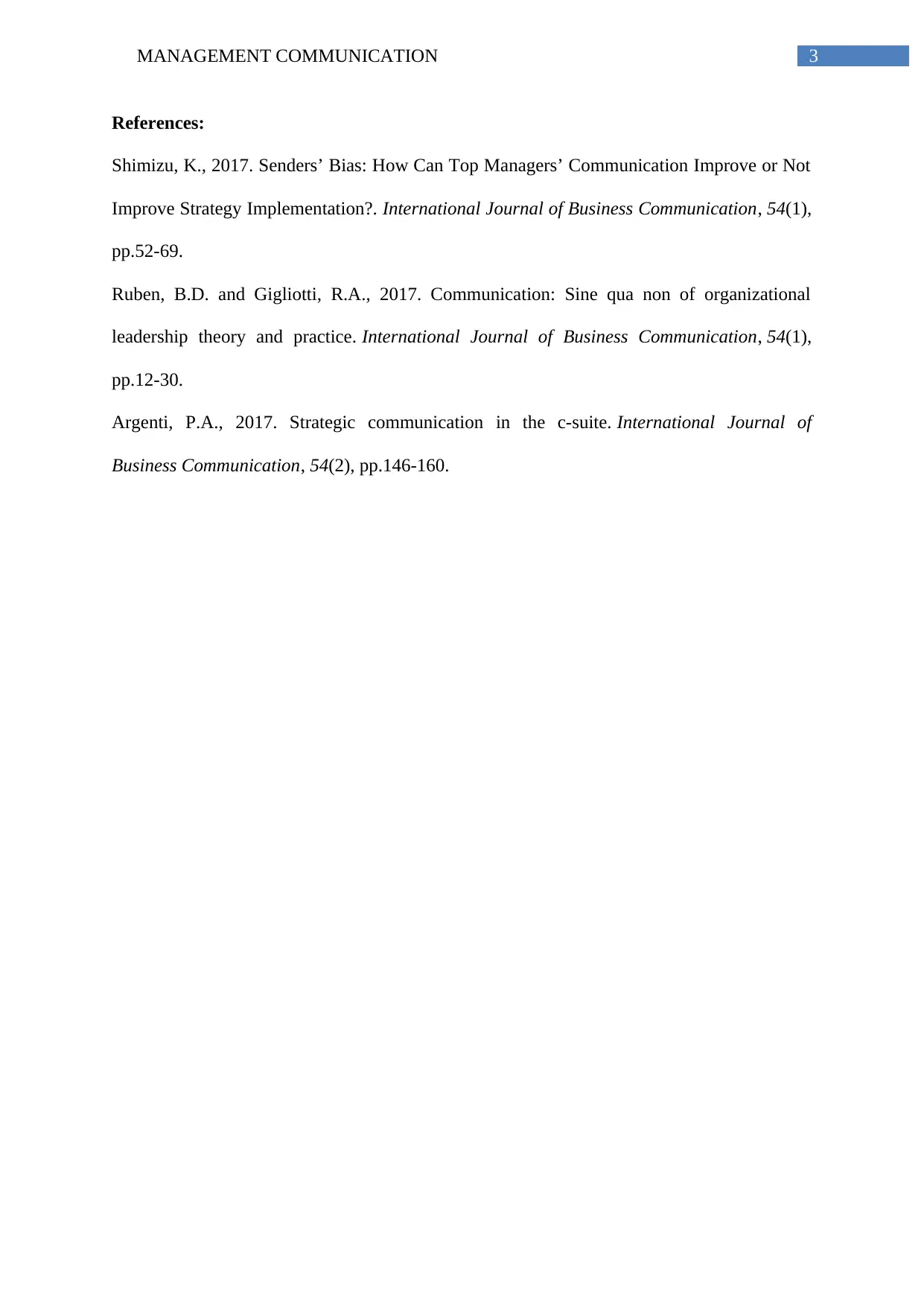Management Communication: Leadership Strategies Report, University ABC
VerifiedAdded on 2023/06/03
|4
|714
|397
Report
AI Summary
This report provides an executive summary discussing the use of communication by leaders to execute their strategies in the 21st century. It explores the evolution of communication from tactical to strategic levels, highlighting how leaders utilize communication for internal engagement, strategy development, and influence. The report examines the impact of communication on strategy implementation, considering factors like senders’ bias and communication mediums. It references key research on leadership communication, emphasizing the importance of effective communication for achieving organizational objectives. The analysis covers the challenges of implementing strategies due to communication issues, and how different forms of communication and openness of top managers can moderate the degree of communication. The report concludes by emphasizing the vital role of modern communication techniques in achieving organizational goals and improving strategy implementation.
1 out of 4










![[object Object]](/_next/static/media/star-bottom.7253800d.svg)